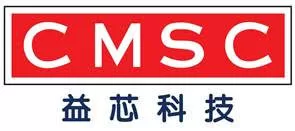
When you intend to study abroad, learning about the school, industry, learning, research and living environment in that country is important and necessary to prepare your luggage and orientations for yourself. close. In this article, we would like to share some basic information for you to refer to and learn for yourself in advance. However, information may change depending on each school and each time, you should refer to many sources for further updates.
Currently, studying abroad in general and studying abroad in Taiwan in particular is no longer strange to many young people. In addition to the schools' official pages, information about studying abroad can be easily found on social networking sites, information sharing groups or on the pages of study abroad support centers. In a more direct form, you can also contact and ask for advice from your predecessors. However, you should also proactively find out some basic information before asking them to have a comprehensive overview and less bothering the person being asked - they will feel comfortable and share more with you. more useful information. Below is some information that you can start your research process about studying abroad in Taiwan:
Normally, we will have two admission semesters: fall semester (submit application around February-March, receive results around May-June, enroll in September), spring semester (submit application Apply around September-October, receive results around December, enroll in February of the following year). Undergraduate programs usually only accept admission in the fall semester (some schools still accept admission in the spring semester).
Start the research process:
1. Through study abroad consulting centers:
If you are lazy to find information, you can immediately contact study abroad consulting centers. However, you should also research on reputable centers. And through this method, you may not have a comprehensive grasp of studying abroad in Taiwan and most of the orientation will be heavily influenced by the centers.
2. Participate in study abroad consulting sessions or watch study abroad consulting videos on YouTube:
Currently, many units or individuals organize online study abroad consultation sessions or post study abroad consultation videos. This is also a pretty good channel for you to learn about studying abroad. Through videos, you can learn information slowly and learn directly by asking questions that interest you about online study abroad consulting programs.
3. Join Facebook groups, follow Fanpages and websites related to studying abroad in Taiwan:
Currently, many study abroad consulting centers or non-profit units and individuals have created groups and pages providing information about studying abroad in Taiwan to support students in learning about studying abroad and supporting them. assist schools in recruiting students, or this is also the place where you can ask questions and have them answered. In the early stages, you can follow the content on these pages to get some basic information. After that, you can ask questions from your own research so that seniors can answer your questions and support you (if possible). In particular, many schools or Vietnamese student associations at schools also create pages/groups to support new students. If you can join these groups, you can get closer to your research goals in case you have already determined the school you want to apply to.
Steps to find out information about schools, majors and how to apply:
4. Find suitable schools:
There are many criteria to choose the right school for yourself: school ranking, industry ranking, suitable majors and research directions, geographical location, scholarship policy,...
A quite convenient website for you to learn about schools in general: https://www.studyintaiwan.org/university. You can search by school or search by level with criteria suitable for yourself:


In addition, if you are interested in school and major rankings, you can refer to the following website:
4.1 School ranking (QS Ranking): https://www.topuniversities.com/university-rankings/world-university-rankings/2022
4.1 Industry ranking (QS Ranking): https://www.topuniversities.com/subject-rankings/2022

After choosing a few suitable schools, you can continue to consider learning about the research directions of professors at the school/faculty and scholarship policies to decide the next step to prepare to submit your application.
5. Find out suitable fields and research directions:
You can go to the department's website to see the main research directions of professors (department name with school name, for example: "Chemical Engineering NTUST", then go to the section to view the list of faculty members: "Faculty", “Professor”, …).
After choosing a few professors with suitable research directions, you can learn more details through the professors' own websites (if available, link on the department website or click on the professor's name to take you to a new page. ). In addition, you can also consider researching professors' published research projects on Google Scholar, ResearchGate, Linkedin, ... (search by professor's name as the name on the department's website with the school name, for example: Duc-Thang Vo NTUST). If a professor has created an account on these sites, you can easily view all of the professor's scientific publications as well as his profile. If the professor has not created an account, you can also view his research projects. Okay.
At this step, you can consider contacting the professor if you find the research direction is suitable for you. In the contact email, you can attach your CV so the professor can understand more about you. The main content of the email may refer to finding out about research directions, laboratories, the ability to accept students, etc. (you should consider not making promises or applying immediately to the lab at this stage to save time). way back after completing research). Currently, many schools/faculties will have certain priorities for applications that have contacted professors with a high possibility of accepting you (in case you have decided, you can ask for a letter of recommendation from the professor). when submitting the application). However, you can also choose a professor after getting the results and deciding to study.
6. Find out application information and scholarship policies:
Instructions on application submission and scholarship policies are also worth paying attention to when studying abroad in Taiwan. You can search for "Admission + school name", for example: "Admission NTUST" to get to the necessary information page. Some schools are very clear, some schools need a little more time to find information. Normally, you can see information about class schedules, tuition, necessary information for new students, especially application deadlines, "Guideline" and "Apply". You should read the "Guideline" carefully first to understand the instructions and requirements regarding the school's application and scholarship policies. Each school will have different requirements, and even each department within the same school may have slightly different requirements.

After completing your research, you can go to the "Apply" section to create an account and begin the application process. Most schools require soft copies to be submitted through the school website system. After completing the application requirements and paying the application fee (about 30 USD), you just need to wait for the results. If you are still wondering and want more opportunities, you can also apply to multiple faculties and schools at the same time.
If the program offers scholarships, the application process is often integrated with scholarship consideration. When the school receives the application, the training department will first check the validity of the application. After initial approval, the application will be sent to the faculty and application review board. Council members can independently review applications on the system, then the faculty will calculate a final score to rank the applications from high to low. The Council will have a meeting to agree on the final results. Based on the ranking order, the department will send the results to the school according to that semester's targets. Those at the top of the list can receive full scholarships, then partial scholarships, free tuition, only accepted and rejected. Many schools also announce the results of the first round. After students respond through the system about whether they accept to study or not, the school may award the above scholarships to those with records at a high level. lower.
7. Basic scholarship types:
Currently, those interested in studying abroad in Taiwan can consider different scholarship sources: government scholarships issued by Taiwan's Ministry of Education (MOE), school scholarships, scholarships from professors, scholarships from the company, ... Scholarships can be viewed as having two parts: tuition and living expenses. MOE scholarships will cover both tuition and living expenses. Full school scholarships will usually be tuition-free and provided with living expenses. Partial school scholarships will usually be tuition-free and partially funded. Living expenses, tuition-free level, you have to cover living expenses yourself, only accepted level, you have to pay both tuition and living expenses.
Regarding MOE scholarships, you can refer to the following sources:
- Website of Taipei Economic and Cultural Office in Vietnam: https://www.roc-taiwan.org/vn_vi/post/7433.html
- Introduction video of VIC Taiwan: https://youtu.be/5WqA5iunlV8
Regarding school scholarships, you should look carefully on the school's website or refer to the video about scholarships at NTUST as an example: https://youtu.be/csd7iAkGedA
With the basic information above, we hope you can begin to learn the basics about studying abroad in Taiwan to prepare for your future journey.
Thang Vo + VIN Taiwan






